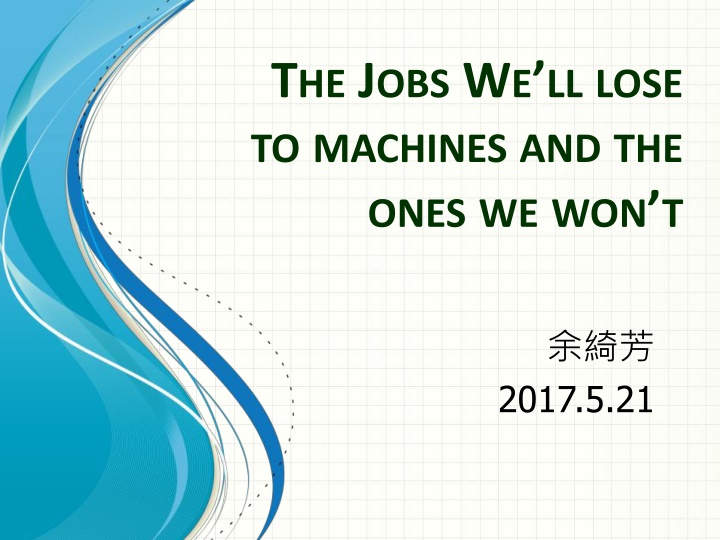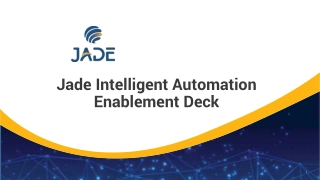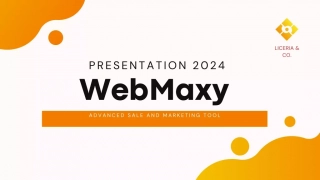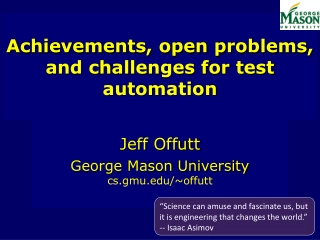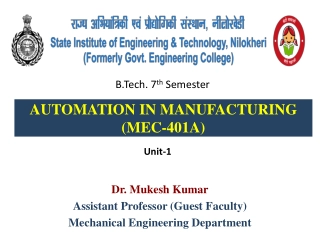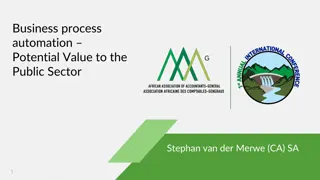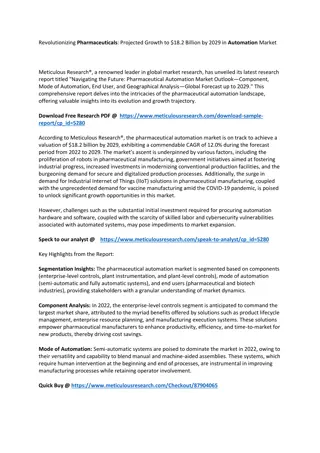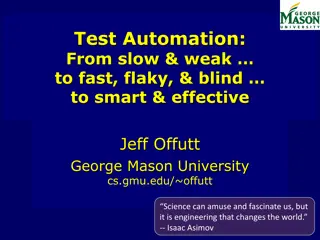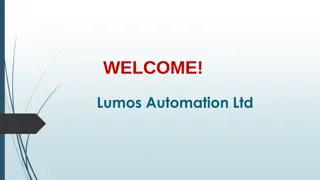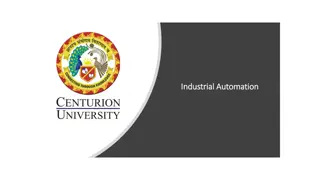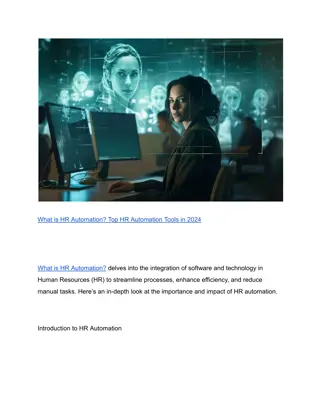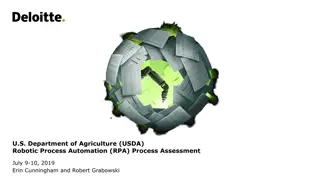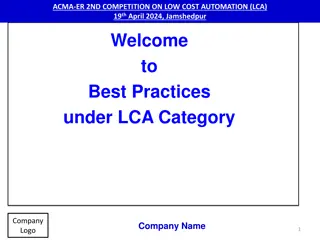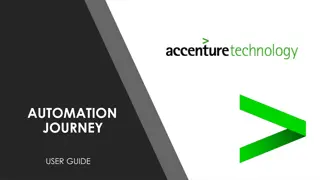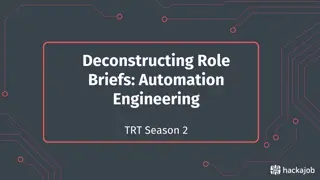Future of Work in the Age of Automation
Researchers at Oxford University have found that nearly half of all jobs are at high risk of being automated by machines. Machine learning, a powerful branch of artificial intelligence, plays a key role in this disruption. Kaggle, a company on the forefront of machine learning, provides insights into which jobs may be automated. While machines excel in certain tasks, humans still possess the ability to tackle novel situations that machines struggle with.
Download Presentation

Please find below an Image/Link to download the presentation.
The content on the website is provided AS IS for your information and personal use only. It may not be sold, licensed, or shared on other websites without obtaining consent from the author.If you encounter any issues during the download, it is possible that the publisher has removed the file from their server.
You are allowed to download the files provided on this website for personal or commercial use, subject to the condition that they are used lawfully. All files are the property of their respective owners.
The content on the website is provided AS IS for your information and personal use only. It may not be sold, licensed, or shared on other websites without obtaining consent from the author.
E N D
Presentation Transcript
THE JOBS WELL LOSE TO MACHINES AND THE ONES WE WON T 2017.5.21
Previewing Questions What do you plan to do when you graduate? Is it possible that your future job will be taken over by machines What kinds of jobs are likely to be replaced by machines? What do you think you can do about this?
Comprehension Questions 1. What did researchers at Oxford University find about the future of work? They concluded that almost one in every two jobs have a high risk of being automated by machines. 2. Machine learning is the technology that's responsible for most of this disruption. It's the most powerful branch of artificial intelligence. It allows machines to learn from data and mimic some of the things that humans can do. Why will this happen? 3. What role does Anthony Goldbloom s company, Kaggle, play in machine learning? My company, Kaggle, operates on the cutting edge of machine learning. We bring together hundreds of thousands of experts to solve important problems for industry and academia. This gives us a unique perspective on what machines can do, what they can't do and what jobs they might automate or threaten.
Comprehension Questions What is machine learning capable of now? Machine learning is now capable of far, far more complex tasks . In 2012, Kaggle challenged its community to build an algorithm that could grade high-school essays . The winning algorithms were able to match the grades given by human teachers. Last year, we issued an even more difficult challenge. Can you take images of the eye and diagnose an eye disease called diabetic retinopathy ? Again, the winning algorithms were able to match the diagnoses given by human ophthalmologists. 5. According to the speaker, in what kind of tasks can machines outperform humans? Now, given the right data, machines are going to outperform humans at tasks like this. A teacher might read 10,000 essays over a 40-year career. An ophthalmologist might see 50,000 eyes. A machine can read millions of essays or see millions of eyes within minutes. We have no chance of competing against machines on frequent, high-volume tasks. 4.
Comprehension Questions 6. What things can humans do better than machines? But there are things we can do that machines can't do. Where machines have made very little progress is in tackling novel situations. They can't handle things they haven't seen many times before. The fundamental limitations of machine learning is that it needs to learn from large volumes of past data. Now, humans don't. We have the ability to connect seemingly disparate threads to solve problems we've never seen before.
Comprehension Questions 7. Why does the speaker say machines cannot compete with humans in novel situations? What example does he give? Percy Spencer was a physicist working on radar during World War II, when he noticed the magnetron was melting his chocolate bar . He was able to connect his understanding of electromagnetic radiation with his knowledge of cooking in order to invent the microwave oven. Now, this is a particularly remarkable example of creativity. Machines cannot compete with us when it comes to tackling novel situations, and this puts a fundamental limit on the human tasks that machines will automate.
Comprehension Questions 8. So what does this mean for the future of work? The future state of any single job lies in the answer to a single question: To what extent is that job reducible to frequent, high- volume tasks, and to what extent does it involve tackling novel situations? On frequent, high-volume tasks, machines are getting smarter and smarter. Today they grade essays. They diagnose certain diseases. Over coming years, they're going to conduct our audits , and they're going to read boilerplate from legal contracts . Accountants and lawyers are still needed. They're going to be needed for complex tax structuring , for path breaking litigation . But machines will shrink their ranks and make these jobs harder to come by . Now, as mentioned, machines are not making progress on novel situations. The copy behind a marketing campaign needs to grab consumers' attention. It has to stand out from the crowd . Business strategy means finding gaps in the market, things that nobody else is doing. It will be humans that are creating the copy behind our marketing campaigns, and it will be humans that are developing our business strategy.
